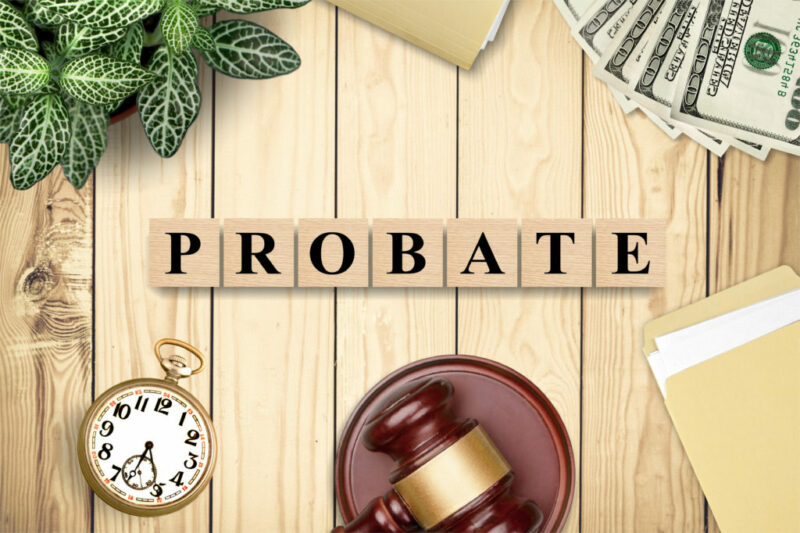Estate planning and charitable giving can be a powerful combination for those who want to make a lasting impact on their favorite causes while ensuring the proper distribution of their assets to their loved ones. When creating an estate plan, a person should carefully consider the tax implications of making charitable gifts to avoid leaving a tax burden to his or her beneficiaries. If you would like to learn about the various ways in which an estate plan can incorporate charitable giving, consider scheduling a consultation with an experienced San Francisco attorney at Von Rock Law by calling (866) 720-0195.
What You Should Know About Charitable Giving and Estate Plans
When it comes to estate planning and charitable giving, there are a few important things to consider, including:
- Tax deductions during life
- Tax deductions on bequests
Tax Deductions During Life
Understanding the tax implications can help when a person is making estate planning decisions, as these gifts can have a significant impact on reducing federal estate and gift taxes. Charitable contributions made during a person’s lifetime can be tax-deductible but only up to a certain percentage of the individual’s adjusted gross income (AGI). The deductible amount varies depending on the type of gift and the tax laws in effect. For example, cash donations to public charities are generally deductible up to 60 percent of the AGI. In comparison, contributions of appreciated assets, such as stocks and real estate, are usually deductible up to 30 percent of the AGI.
Tax Deductions on Bequests
Potential charitable donors should be aware of applicable estate taxes. These are taxes on property transferred to a person’s heirs at his or her death, per the Internal Revenue Service (IRS). In some situations, charitable giving is not taxed. The estate tax charitable deduction is generally unlimited, meaning that the entire value of the charitable contributions can be deducted from the estate’s value. As a result, heirs will pay less in estate taxes.
What Is Considered a Charity?
The charitable gift tax exemption is a provision in the tax code that allows individuals to make gifts to charitable organizations without incurring gift taxes. However, a person must make a charitable donation to a qualified charity, such as:
- A church
- A 501(3)c non-profit organization
- An educational institution
Funds donated to charities of these types are not subjected to a gift tax. As a result, the donor can make these gifts without reducing the amount of his or her lifetime gift and estate tax exemption. Many states also provide a state income tax deduction for charitable contributions, which can reduce the donor’s tax liability for the year in which the donation is made. To learn more about charitable giving and estate plans, consider reaching out to an estate planning lawyer from Von Rock Law.
Can I Establish a Charitable Trust in My Estate Plan?
Charitable trusts are legal structures in which a trustee holds assets for the benefit of a charitable organization. Often, these trusts are used for individuals or organizations to make charitable gifts while also receiving tax benefits. According to the Internal Revenue Service, a charitable trust is treated as a private foundation. There are several types of charitable trusts, including charitable lead trusts, charitable remainder trusts, and private foundations.
Charitable Lead Trust
A charitable lead trust (CLT) allows individuals to make charitable gifts while also providing for their family members or other beneficiaries. The trust then makes payments, either a fixed amount or a fixed percentage of the value of the trust assets, to charitable organizations for a specified period. After that time, the assets in the trust are turned over to the grantor’s designated beneficiaries, such as family members or other individuals.
Charitable Remainder Trusts
A charitable remainder trust (CRT) allows individuals to make charitable gifts while also receiving income from the trust for a specified period. As in a charitable lead trust, the grantor transfers the assets into the account. After that, the trust pays out a fixed percentage of the value of the trust assets to the grantor or a designated beneficiary, usually on a quarterly or annual basis. After the grantor or the designated beneficiary dies or the trust term ends, the remaining assets in the trust are distributed to the charities designated by the grantor.
Private Foundations
A private foundation is a type of non-profit organization typically established and funded by a single individual or family. These foundations are separate legal entities designated under state law and strictly regulated by federal and state governments. Private foundations often achieve specific charitable goals or support philanthropic causes.
Generally, this kind of trust is managed by a board of directors or trustees appointed by the individual or family that established the foundation. Private foundations must distribute a certain percentage of their assets each year to charitable organizations or causes, known as the distribution requirement. Private foundations must also follow a specific tax code established by the IRS.
Establishing a Charitable Trust
The rules and regulations surrounding charitable trusts can be complicated. Additionally, they can vary depending on the type of trust and the jurisdiction in which it was established. The charitable trust must follow specific rules, such as:
- The charitable purpose should be exclusively for the public benefit
- The charitable trust should not operate for the benefit of the founder or family members
- The charitable trust should be irrevocable
- The income should be used for charitable purposes only
Charitable trusts provide a way to make charitable gifts while receiving tax benefits. However, they do also need careful planning and administration. For that reason, many individuals consult with estate planning attorneys to ensure that the trust will be established and administered in compliance with current applicable laws and regulations. In turn, these trusts can achieve the intended charitable purpose while providing the desired tax benefits.
Contact a San Francisco Estate Planning Attorney Today
Estate planning and charitable giving are essential considerations for those who want to pass on their wealth to future generations and positively impact society. Many individuals will want to consider their estate and charitable giving plans early in life to ensure that their wishes will be carried out in the future. These individuals may also want to stay informed about changes in tax laws and other regulations that may affect their estate plans. If you want to learn more about your options for charitable estate plans in California, consider scheduling a consultation with an experienced estate planning attorney from Von Rock Law by calling (866) 720-0195 today.




